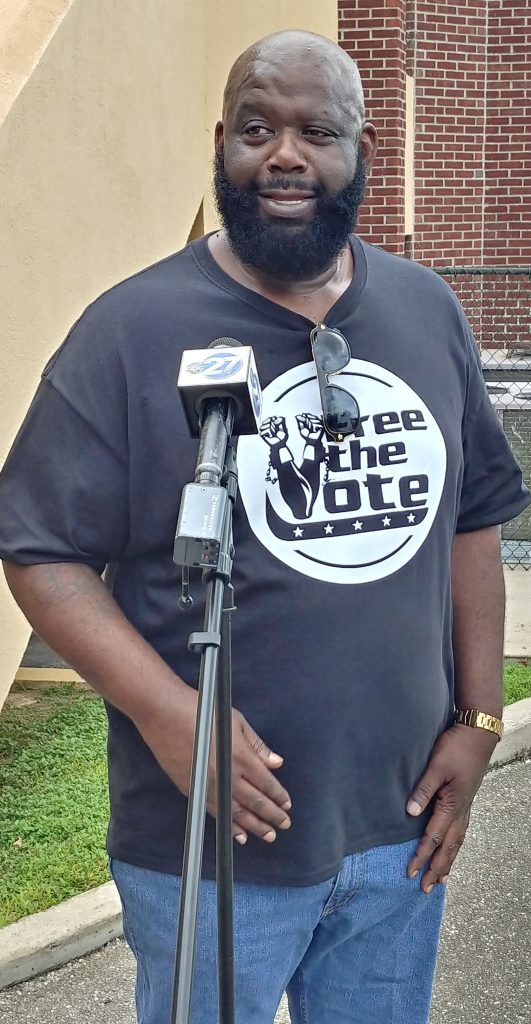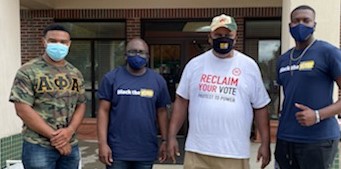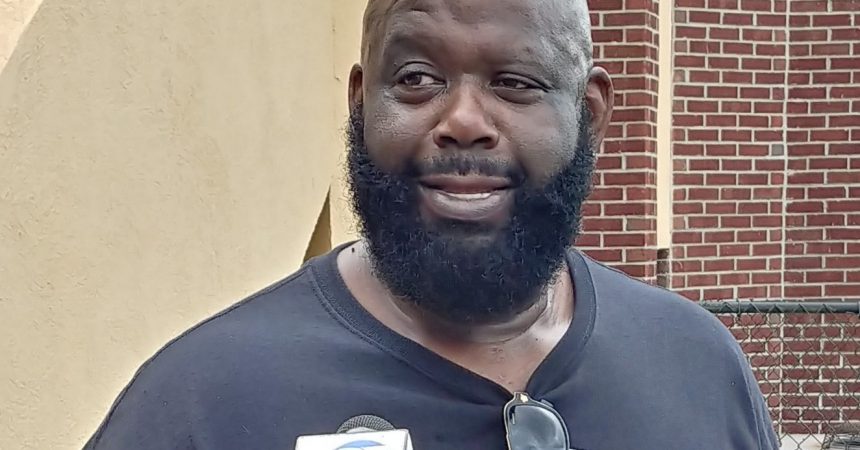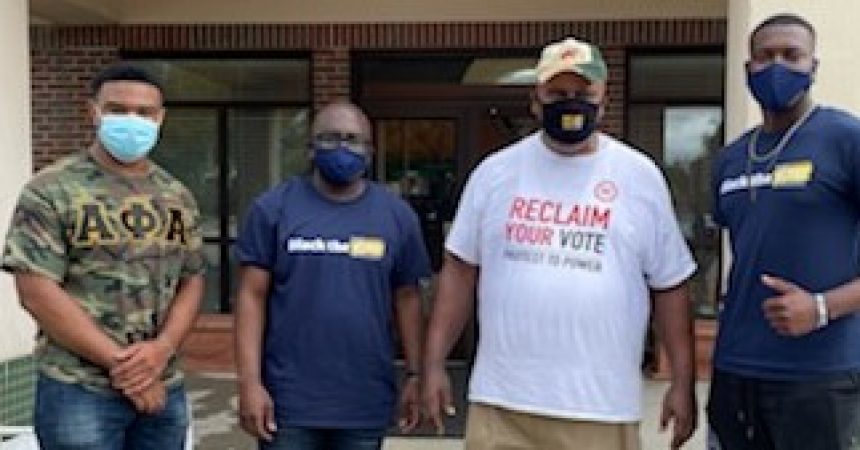Former felon joins restoration movement, inspiring others to vote
By St. Clair Murraine
Outlook staff writer
Michael Brown had a good job working as a corrections officer in the state prison system in the late 1980’s. He never hesitated to strike up a conversation with inmates.
He still finds it easy to speak with anyone, especially if it’s about regaining the right to vote. This past Saturday, Brown was one of the people rallying felons with restored voting rights to go to the poll.
They are carrying out the campaign despite confusion caused by a law requiring that felons clear court-related debts. The FRRC has gotten support from celebrities that include athletes like LeBron James and Michael Jordan.
Felons in Florida got eligibility to vote through Amendment 4, which more than 60 percent of voters approved in 2018. It has since been complicated by a state law that requires felons to pay “legal financial obligations” before they could vote.
The FRRC has been helping to pay the fines, fees, costs and restitution tied to their convictions.
Talk to Brown long enough and it becomes clear why he has interest in helping felons. Statistic show that Florida has more than 1 million returning citizens who could have their right to vote restored.
Doing just that has become Brown’s mission.
“It’s important to me because I’m one of the people that benefitted,” Brown said. “I am a returning citizen and my right to vote means everything to me.”

Photo by St. Clair Murraine
These days Brown is a canvasser for the Florida Rights Restoration Coalition. On Saturday, the FRRC held a rally in the parking lot at Tabernacle Church. A similar event was held in Quincy with the idea of getting felons to the poll.
It was one of several on-going events to get registered voters to the poll. The Tallahassee Urban League joined with the NAACP and FAMU students to canvass the Bond neighborhood with reclaim your vote messages. More than 2,000 door hangers were given out, according to Curtis Taylor, president of the local chapter of the Urban League.
Apart from that, the NAACP has ramped up effort to get people to vote, using text messages.
On Sunday, Souls to the Polls will take place at noon, assembling at Bethel Missionary Baptist Church. They will march to the Civic Center at 12:30 for a rally and voting.
In addition to the rally on Saturday, the FRRC has been on a bus tour around the state with its “Free the vote tour.”
Young voters were also at the center of Saturday’s rally. Marian Harrieo, state coordinator of the Florida Black Youth Vote, used the event to recruit young voters. She and others lined a stretch along Orange Avenue from Pasco Street to Adams Street for hours.

Photo submitted
When they aren’t on the street, they use Zoom to stress the importance of voting, she said.
“It hadn’t been too difficult,” said Harrieo, a 22-years-old junior at FAMU. “It slowed us down a little bit but we made the changes we needed to because we understand we need to motivate our youths to understand the importance of voting.”
Brown has been inspiring potential voters with his story of going from being a correction officer to the one behind bars.
His life took the profound turn during one of many conversations that he had with a prisoner while working as a corrections officer in the state’s prison system.
He was enticed by the inmate’s suggestion that he could do much better selling drugs.
A contact was established and Brown was on his way as a drug dealer for about three years. Then the script flipped ––Brown found himself serving an eight-year sentence from behind the same bars where he once kept others.
Brown, 52, received clemency during the Lawton Chiles administration in the late 1980’s. He voted for the first time after serving his sentence in 2008.
Life has never been better, he said, vowing to continue his push to help felons through the process of regaining their right to vote.
“I can go to bed at nights, sleep comfortable and don’t have to worry about the police knocking at my door,” he said. “I don’t have to worry about looking over my back and I can voice my opinion openly.”
Although the turnout was much smaller than anticipated, Stanley Walker Jr., who coordinated the event for the FRRC, said the effort will be on-going.
“We are trying to do a lot of ground work to educate people to let them know what’s the importance of voting,” Walker said. “We are not just reaching out for felons, but we are also reaching out for family members who are impacted by returning citizen.”









